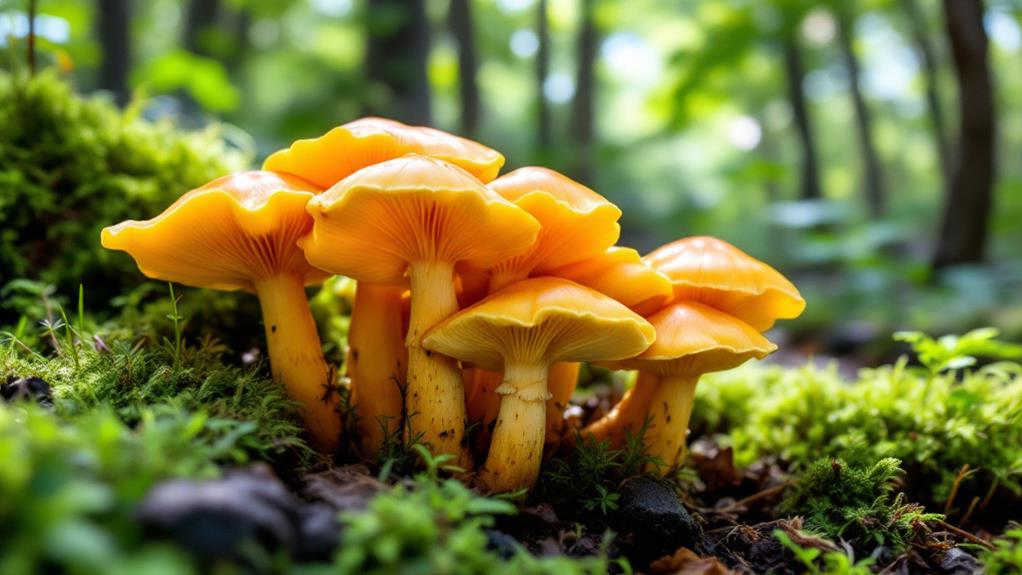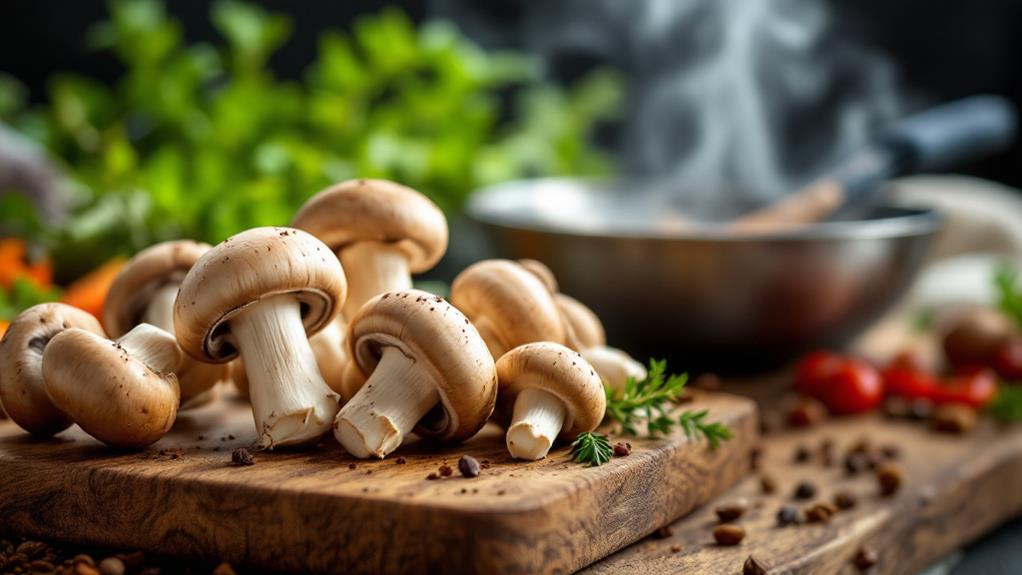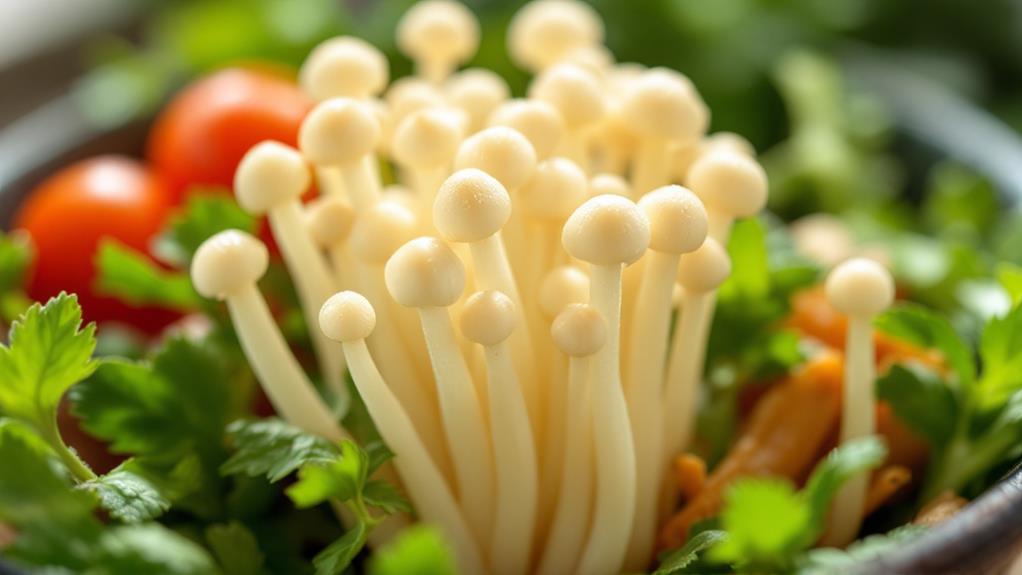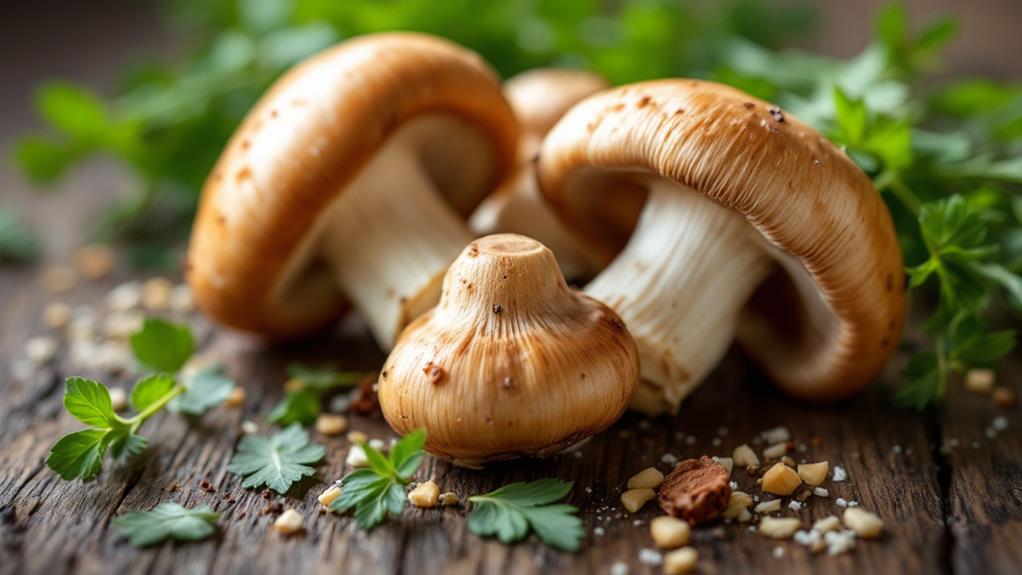The Mushroom Boom: Why Fungi Are the New Health Food Powerhouse

You're part of a culinary and health transformation where mushrooms take center stage. They offer low calories and a rich nutrient profile, including essential B vitamins and vitamin D. These fungi provide a natural enhancement for your immune system and aid in digestion, thanks to their bioactive compounds and high fiber content. Beyond nutrition, mushrooms are versatile in the kitchen, enhancing flavors and mimicking meat textures. They're a key player in plant-based diets and changing health drinks. Plus, their sustainable cultivation highlights their eco-friendly perks. There's a lot to investigate about why mushrooms are today's health food powerhouse.
Nutritional Benefits of Mushrooms
In relation to enhancing your health, mushrooms are a powerhouse of nutrition. They're low in calories, with just one cup providing about 20 calories and 3 grams of protein. This makes them an excellent choice for weight management, as you get valuable nutrients without the calorie overload. Mushrooms are rich in necessary nutrients like B vitamins, potassium, selenium, and copper, all of which play important roles in maintaining your complete well-being.
Mushrooms also contain bioactive compounds such as beta-glucans and polysaccharides. These compounds are known for their ability to stimulate immune activity and combat inflammation, helping your body adapt to different stressors. Furthermore, the high fiber content in mushrooms promotes satiety, aids digestion, and helps stabilize blood sugar levels, contributing greatly to metabolic health.
Moreover, certain types of mushrooms, like reishi and cordyceps, are considered adaptogenic, which means they can help the body adapt to stress and reduce anxiety. Mushrooms are one of the few natural sources of vitamin D, which is essential for bone health and immune function. By incorporating mushrooms into your diet, you're not just enjoying a tasty food, but also enhancing your nutritional intake.
Culinary Versatility and Uses
Regarding culinary versatility, mushrooms shine as a standout ingredient. They're beloved for their ability to mimic meat textures, thanks to their unique umami profile. You can find varieties like shiitake and portobello transforming dishes with their rich, savory flavors. Regardless of whether you're a home cook or a gourmet chef, mushrooms offer endless possibilities, from appetizers to desserts. Their role in the culinary world has expanded, with chefs using them to enhance flavor and nutrition in creative ways.
Mushrooms don't just stop at solid dishes. They're making waves in beverages too. Have you tried mushroom coffee or tea? By blending medicinal varieties like lion's mane with traditional ingredients, you get a unique flavor profile with extra health benefits. Lion's mane, known for its cognitive support, is perfect for your morning brew, offering a plant-based protein increase.
Oyster mushrooms are another versatile option, adding a delicate texture and mild flavor to stir-fries and soups. As their popularity grows, especially in plant-based diets, mushrooms have become a staple in creating hearty, satisfying meals. Their high fiber content supports digestive health, making them an ideal supplement to any balanced diet.
Mushroom-Based Meat Alternatives

Imagine a world where your favorite burger is made from mushrooms, offering the same satisfying bite and flavor as meat. This isn't just a dream—it's a sustainable food reality. Mushrooms have become the cornerstone of plant-based meat alternatives, celebrated for their unique umami flavor and fibrous texture that closely mimics meat. Regardless of if you're a vegan or just investigating healthier options, mushroom-based meat substitutes cater to all, providing a tasty, nutritious choice.
Major companies like Beyond Meat and Impossible Foods are already harnessing the power of mushrooms in their plant-based burgers. Their success showcases the versatility of mushrooms as a meat substitute, fulfilling the growing consumer demand for healthier and environmentally friendly food options. As a cost-effective alternative to traditional plant proteins like pea and soy, mushrooms offer an impressive nutrient profile, enhancing the health benefits of these meat alternatives.
The surge in the market for mushroom-based meat alternatives is undeniable. As you investigate these options, you're not only enjoying delicious meals but also contributing to a more sustainable future. Welcome the mushroom boom and uncover the incredible possibilities these fungi bring to your plate.
Emerging Trends in Mushroom Beverages
Mushroom beverages are quickly carving out their niche in the health food market, as consumers seek functional drinks that offer more than just refreshment. You've probably noticed mushroom coffee popping up at your local cafe, combining the rich taste of traditional coffee with adaptogenic mushrooms like reishi and lion's mane. These blends offer potential health benefits, such as reduced stress and improved cognitive function, making them an appealing choice for both coffee lovers and health-conscious individuals.
The global market for functional beverages is on the rise, reflecting a growing interest in drinks that support wellness. Mushroom beverages fit right into this trend, offering unique flavor profiles and health benefits that stand out in a crowded marketplace. Companies are innovating rapidly, creating mushroom-infused drinks that support immune function and align with holistic wellness practices.
Moreover, mushroom elixirs are gaining traction, blending earthy flavors with complementary ingredients for a calming experience. These drinks are perfect for those seeking a soothing alternative to traditional beverages. As the global interest in health-oriented drinks continues to grow, mushroom beverages are poised to play a significant role in the evolving landscape of functional beverages.
Sustainability and Environmental Impact

Cultivating mushrooms stands out as an environmentally friendly practice due to their minimal resource requirements. You'll find that mushrooms need little water and land, making them a sustainable choice for food production. This eco-friendly approach not only supports high yield potential but also capitalizes on limited spaces. Through nutrient cycling, mushrooms recycle organic waste, enhancing environmental sustainability. By transforming waste into valuable resources, they contribute greatly to the bioeconomy.
Mushrooms' environmental impact extends beyond cultivation. Mycelium, the root-like structures of fungi, offers creative eco-friendly solutions. It's a sustainable alternative to plastics and traditional building materials, aligning with circular economy principles. By utilizing mycelium, you're not just reducing waste but also promoting a healthier planet.
Urban mushroom farms are also gaining traction, repurposing old factories and warehouses for local food production. This model helps reduce carbon footprints, bringing fresh produce closer to urban consumers. As interest in sustainability grows, mushroom-based products are increasingly popular for their role in reducing agricultural waste and fostering healthy ecosystems. Embracing mushrooms means you're not just choosing a nutritious food but also supporting a more sustainable and eco-friendly future.




